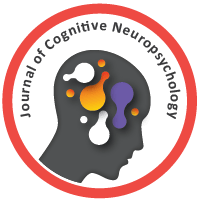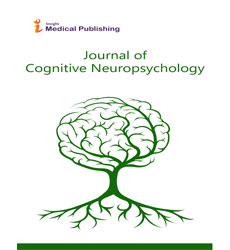Exploring Passive Music Listening and its Impact on Cognition: Attitudes in Focus
Vaitsa Giannouli*
Institute of Neurobiology, Bulgarian Academy of Sciences, Sofia, Bulgaria
- *Corresponding Author:
- Dr. Vaitsa Giannouli
Institute of Neurobiology
Bulgarian Academy of Sciences
Sofia, Bulgaria
Tel: +306977441502
E-mail: giannouliv@hotmail.com
Received date: November 29, 2017; Accepted date: November 29, 2017; Published date: December 6, 2017
Citation: Giannouli V (2017) Exploring Passive Music Listening and Its Impact on Cognition: Attitudes in Focus. J Cogn Neuropsychol Vol.1: No.1: 4.
Editorial
In a plethora of studies, music is claimed to have a positive influence on various aspects of cognition [1]. An emphasis in the results of experimental research is given to the enhancement of general intelligence and learning, but also more specific processes are reported such as memory performance, concentration, attention, spatial-temporal reasoning and mathematical abilities [2]. Although not all studies claim the same magical influence of music on different aspects of cognition, it is of great importance to explore what do individuals believe about music [3] and music’s specific characteristics, that excerpts with a positive influence (which are able to improve cognitive capacity) may have.
The aim of this research is to examine the attitudes that young university students from Greece have for music and cognition. Although little investigated, this topic is of interest, as the personal beliefs-prejudices may intervene in relevant cognitive testing or may shape individual reactions in music enhancement/rehabilitation programs. Three hundred volunteers (188 women; mean age=21.91 years, SD=4.95) participated in this study. The participants were all nonmusicians and did not suffer from any type of neurological and/or psychiatric disease. A questionnaire was administered and the main closed-and-open-ended questions at which they had to respond were: 1) Do you believe that passive music listening can improve your cognitive performance? (78% yes, 22% no), 2) Which aspects of cognition can passive music listening influence? (Attention 43%, memory 47%, spatial cognitive functions 42%, verbal cognitive functions 31%), 3) Is there a specific way-mechanism that this improvement may happen? (by activating in some way the brain networks 66%, by relaxing the individual and thus permitting more accurate responses 24%), 4) Which music genres do you generally prefer? (contemporary R&B 33%, pop 30%, rock 22%, classical 14%, jazz 11%, latin 6%), 5) Which specific music genre do you believe that would help you improve your cognition (classical 88%) 6) Why? (because there is substantial research evidence for that 78 %, because classical music has usually no lyrics and permits more concentration 64%, because classical music has something special-more effort during the composing of the piece, genius composers 19%), 7) Does passive music listening have the potential to be used in cognitive rehabilitation/and or cognitive enhancement programs (92% yes, 28% no), 8) Can you describe the main reasons for that? (it is available at any time 51%, it is available at low cost 56%, it does not intervene in everyday life 27%, it does not cause negative feelings to the individuals 26%), 9) Can passive music listening improve cognition only in healthy individuals or additionally it can be used in those who suffer from a cognitive-emotional problem and/or hearing loss? (82% for both, 18% only for healthy), 10) Are younger individuals (children and young adults) more suitable for passive music listening as a means of cognitive intervention or older individuals can benefit too? (71% for both, 29% only for young), 11) what would you propose to healthcare experts? (Introduce passive music listening as cognitive intervention to the public 61% explore more the relevant scientific literature before making it part of expert practice 22%).
In conclusion, the results of the present study demonstrate, to our knowledge for the first time, that young adults in Greece do hold strong attitudes towards passive music listening. Although regardless of the historical period and the artistic style, music’s fundamental elements-characteristics (e.g. morphology, rhythmical and tonic repetitive patterns) seem to remain unaltered in their core expression [4], the role only of classical music listening is overemphasized regarding cognitive strengthening in healthy children and adults, as well as cognitive rehabilitation in patients. These attitudes must be further investigated in different countries and cultural contexts before future relevant interventions and research protocols are incorporated in healthcare services, and more specifically in neuropsychological rehabilitation.
References
- Giannouli V, Tsolaki M, Kargopoulos P (2010) The influence of Mozart's and Beethoven's music on reverse mnemonic recall tasks. Psychiatriki 21: 60-67.
- Giannouli V (2013) Attitudes towards music as a means of therapy: Can it help to overcome depression and/or cardiovascular disease?. Health Psychol Res 1: e7.
- Giannouli V, Lytras N, Syrmos N (2012) Is there a place for music in nuclear medicine? Hell J Nucl Med 15: 188-189.
- Giannouli V (2011) Music in a serial repetition task: Is there perseverative behavior. Acta Neuropsychologica 9: 361-368.

Open Access Journals
- Aquaculture & Veterinary Science
- Chemistry & Chemical Sciences
- Clinical Sciences
- Engineering
- General Science
- Genetics & Molecular Biology
- Health Care & Nursing
- Immunology & Microbiology
- Materials Science
- Mathematics & Physics
- Medical Sciences
- Neurology & Psychiatry
- Oncology & Cancer Science
- Pharmaceutical Sciences
